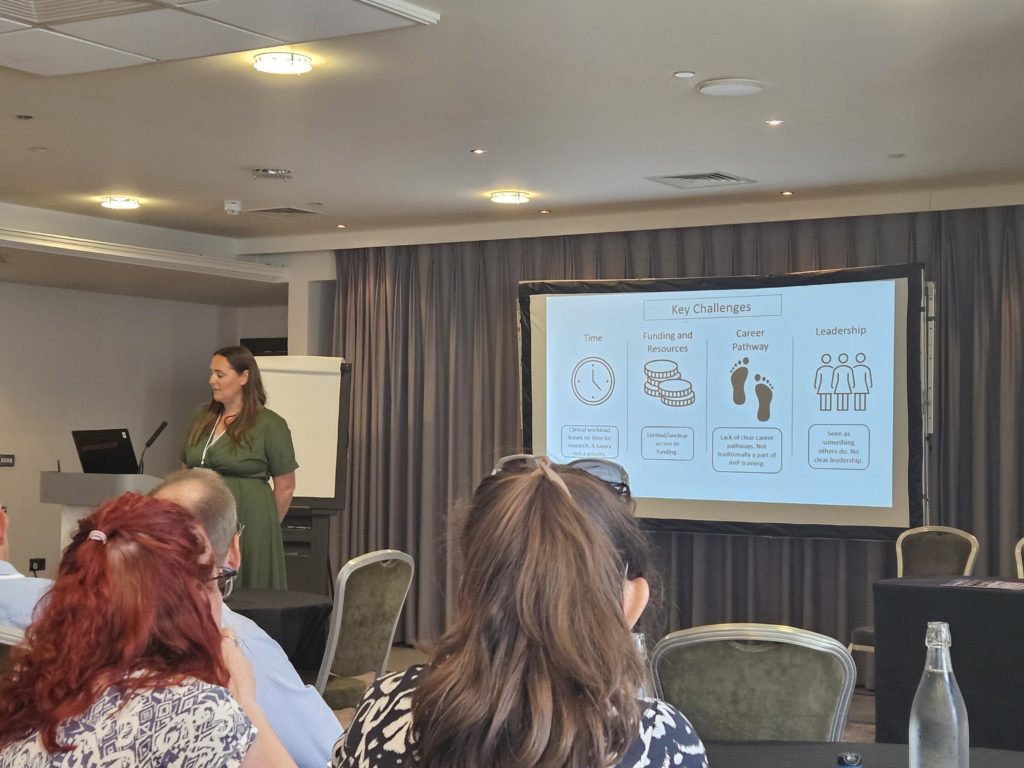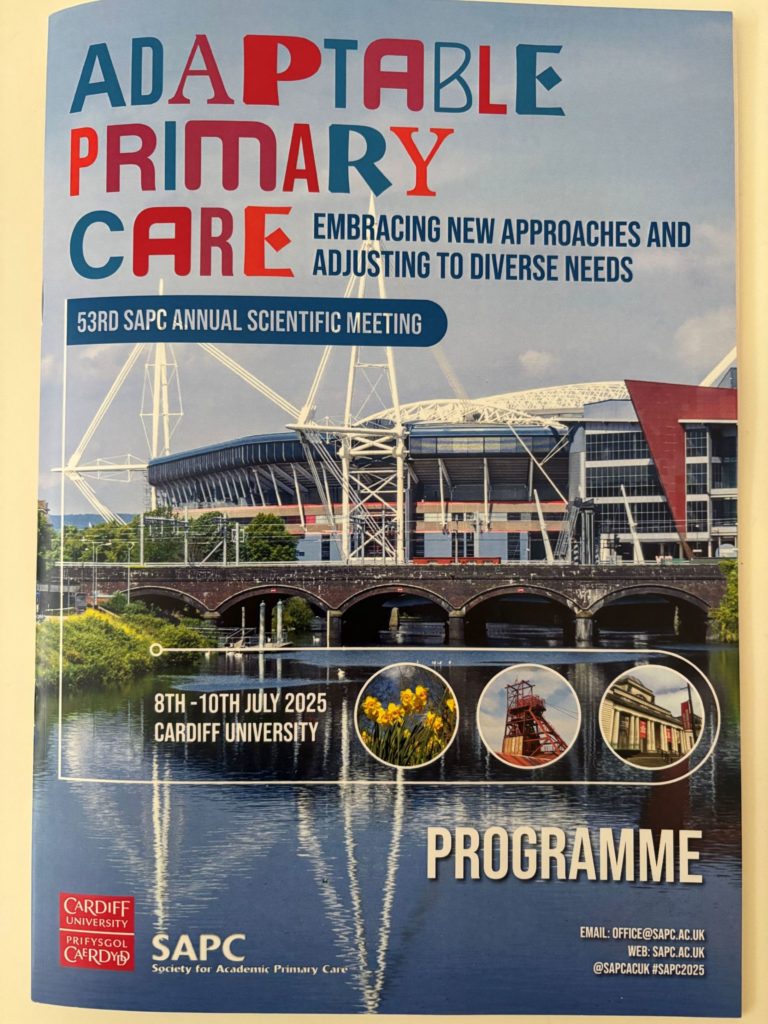Exeter Collaboration for Academic Primary Care (APEx) Blog
Exeter Collaboration for Academic Primary Care (APEx) Blog
Posted by ma403
29 July 2025
I recently had the chance to speak at the Society for Academic Primary Care (SAPC) annual scientific meeting in Cardiff, a brilliant event that brings together researchers, clinicians, and academics from across the country. I was part of a workshop focusing on some of the important and significant challenges Allied Health Professionals (AHPs) face when trying to get involved in research.
Standing in front of a room full of experienced professionals was a bit nerve-wracking (hello imposter syndrome), but it ended up being a valuable experience and one I’ll definitely take a lot from.
I delivered a short talk on a topic close to my heart: why it’s still so hard for many AHPs to access research opportunities, despite the growing emphasis on evidence-based practice and innovation in healthcare. I was lucky to be joined by two fantastic colleagues — Tomazo Kallis, a pharmacist and PhD student here in Exeter, and Hannah Brady Sawant, a nurse and clinical research advisor working in Leeds.
In this blog, I wanted to share some highlights from our session and some reflections from the day.
Why This Conversation Matters
As AHPs — whether we’re physiotherapists, occupational therapists, speech and language therapists, and alongside our colleagues in pharmacy and nursing, we see firsthand the impact that high-quality research can have on patient care. We bring ideas, insights, and frontline experience that can shape meaningful research. Yet, despite all this, many of us still struggle to find a way into research roles.
Common Barriers AHPs Face
As a group, we talked through some of the main challenges that come up time and again for AHPs wanting to get involved in research:
A Shared Experience — and a Sense of Momentum
One of the best things about being part of this session was hearing from others who had faced the same challenges. It was encouraging to see how much this topic resonated, and there was a real sense that change is not only needed — it’s coming.
We talked about a few things that could help move things forward:
What I Took Away
For me, this was more than just an opportunity to present, it was something that really reaffirmed why I’m doing what I’m doing. Being invited to speak at SAPC made me feel seen and valued as an AHP with a voice in the research space.
It also left me more motivated to help build the kind of environment where others feel supported to pursue research, whether that’s through mentoring, collaboration, or simply continuing to speak up about the barriers we face.
Thank you to Rupert Payne for the invitation, and to everyone who shared their thoughts and experiences on the day.
